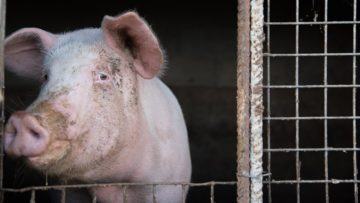Max Kozlov in Nature:
 Researchers have restored1 circulation and cellular activity in the vital organs of pigs, such as the heart and brain, one hour after the animals died. The research challenges the idea that cardiac death — which occurs when blood circulation and oxygenation stops — is irreversible, and raises ethical questions about the definition of death. The work follows 2019 experiments2 by the same scientists in which they revived the disembodied brains of pigs four hours after the animals died, calling into question the idea that brain death is final. The latest experiments are “stunning”, says Nita Farahany, a neuroethicist at Duke University in Durham, North Carolina. Although this study is preliminary, she says it suggests that some perceived limitations of the human body might be overcome in time.
Researchers have restored1 circulation and cellular activity in the vital organs of pigs, such as the heart and brain, one hour after the animals died. The research challenges the idea that cardiac death — which occurs when blood circulation and oxygenation stops — is irreversible, and raises ethical questions about the definition of death. The work follows 2019 experiments2 by the same scientists in which they revived the disembodied brains of pigs four hours after the animals died, calling into question the idea that brain death is final. The latest experiments are “stunning”, says Nita Farahany, a neuroethicist at Duke University in Durham, North Carolina. Although this study is preliminary, she says it suggests that some perceived limitations of the human body might be overcome in time.
In the work, published on 3 August in Nature1, researchers connected pigs that had been dead for one hour to a system called OrganEx that pumped a blood substitute throughout the animals’ bodies. The solution — containing the animals’ blood and 13 compounds such as anticoagulants — slowed the decomposition of the bodies and quickly restored some organ function, such as heart contraction and activity in the liver and kidney. Although OrganEx helped to preserve the integrity of some brain tissue, researchers did not observe any coordinated brain activity that would indicate the animals had regained any consciousness or sentience.
More here.
